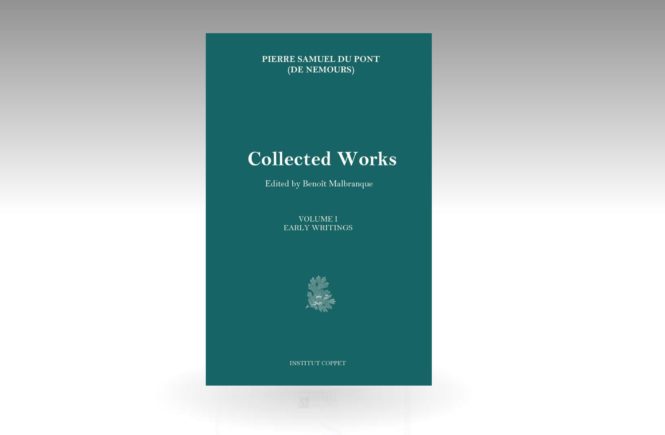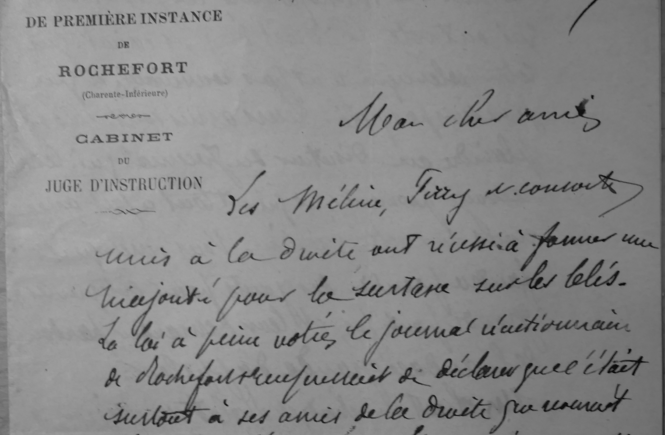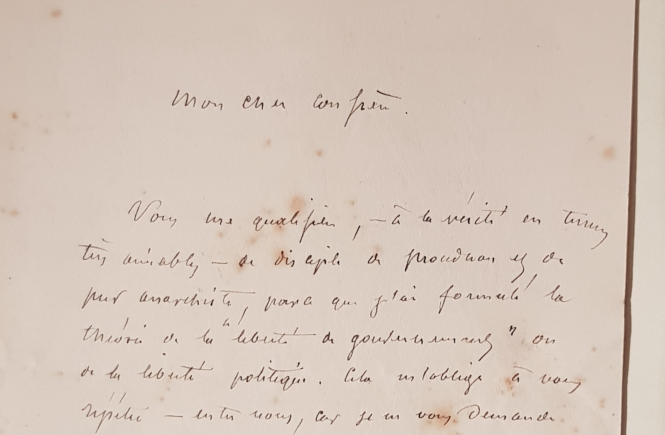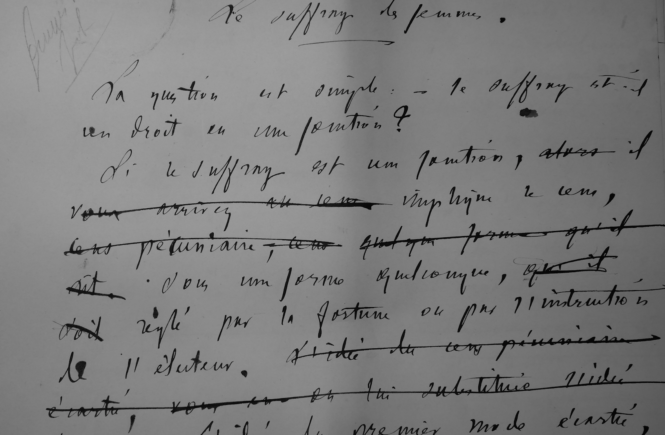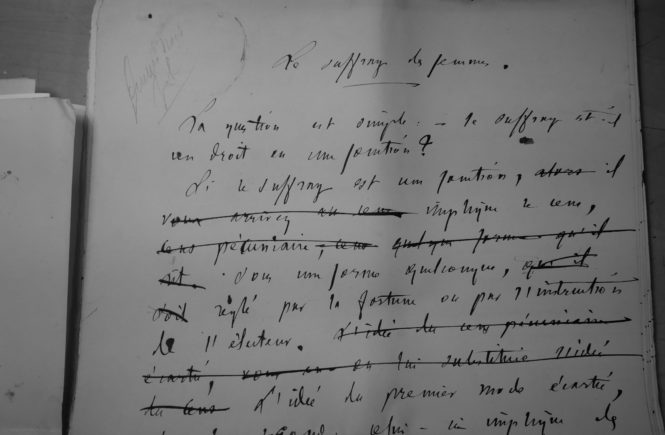On introducing the first of multiple volumes offering the collected writings of the Physiocrat economist Pierre Samuel Du Pont (de Nemours), lengthy pages could be devoted to his merits or the tremendous heritage that he left, both intellectually and practically, on each side of the Atlantic. Yet on the assumption that a reader opening such a large book must have been motivated by more than a sense of curiosity, and his justification been more substantial than a pick at random, I shall confine myself presently to the assertion that on the part of the Institut Coppet, and mine, it is our feeling that a duty has simply been performed, and justice rendered.
Moderates against radicals on the issue of free trade (1885)
Why, indeed, have we been beaten? Because of the unawareness of the public regarding the issue: ignorance is therefore the enemy that we have to fight and to defeat, and in this very battle our weapon must be the truth, the only exact and only fruitful principle of the inalienable and imprescriptible right that is the right to exchange.
Letter from Gustave de Molinari to Arthur Mangin (1885)
In addition to the office of the Revue Bleue, I regularly visited that of the Journal des Économistes, which was adjacent to Guillaumin’s publishingcompany, located on rue de Richelieu. Every Saturday, in the late afternoon, the editor-in-chief, Gustave de Molinari, was receiving people. I cannot remember anyone whose conversation struck me more or as much as his. When discussing any issue, he had his own ideas and phrases. One could never be sure of what he was going to say, or how he was going to say it, except that he would say it like no one else. His originality went as far as paradox, and he carried paradox into theory.
Yves Guyot on women’s suffrage (1879)
What is the argument of opponents of women’s suffrage? Their incapacity, their feeble mind, their ignorance! They proclaim, by this very fact, that universal suffrage is a function. Men are sole responsible for regulating it. They establish themselves as the sovereign judges of the aptitudes of those who are to fulfill it. They claim to be the only ones capable of doing so; all of them are capable; and being the strongest, they exclude all women. After having banned half the nation from that role, they pompously declare that they have established universal suffrage. It is the oligarchy of sex substituted for the oligarchy of money.
Two letters from Frédéric Bastiat to A. de Lamartine (1847)
Why would I hide this observation from you? The more France admires your imagination, the more she distrusts it. Poetry and business are believed to be mutually exclusive; one finds in your speeches noble thoughts, generous intentions, an inimitable eloquence, but one cannot find a program, namely what there is to do now. Tell us, tell us then: If I were a minister, these are the reforms I would make and the order in which I would make them! — And if that is clear, striking, practical, be sure that France will take you to the ministry.
Jean-Baptiste Say on the possibility of a society without government (1819)
Government is not an essential part of the organization of societies. I would ask you to note that I am not saying that government is useless; I say that it is not essential; that society can exist without it; and that if the associates were willing to do their business and to let me do mine, the society might as well function without government. Public authority is therefore an accident; it is an accident made necessary by our imprudence, by our injustice which leads us to infringe on the rights of our fellow man.
French classical liberals and the issue of women’s rights
It is tempting for a liberty-minded historian to leave untouched the comforting presumption that French classical liberals, who championed freedom for the individual in the 17th, 18th and 19th centuries, must have upheld women’s rights too. Contemporary studies, while often obliterating the role of men in the development of feminist rhetoric, have found occasionally in the history of ideas some remarkable advocates well ahead of their times, and they have offered them as objects of uncritical admiration, in a sort of reconciliatory carnival. One easily concludes that feminism was burgeoning in every century, and that the rising tide was lifting up all boats. […]
The United States through the eyes of French classical liberalism
In the 18th and 19th centuries, French classical liberals have often seen the United States as an example and a model. Yet, if some have loved this country in a sort of long-distance relationship, others have actually made the travel and have written detail accounts. In this article, Benoît Malbranque examines the praises and criticisms put forward by authors such as Volney, Tocqueville or Gustave de Molinari, regarding the social and economic situation of the United States.
Molinari’s failed election of 1859, by Dries Van Thielen
Unlike some French economists who centered around the Journal des Economistes (notably Louis Wolowski and Frederic Bastiat), Gustave De Molinari never was a politician. However, this does not mean that he never ran for office. In this short overview, Dries van Thielen presents De Molinari’s failed attempt to join the ranks of the liberal party in 1859.
Frédéric Bastiat, Speech on “Disarmament, Taxes, and the Influence of Political Economy on the Peace Movement” (1849)
Frédéric Bastiat, Speech on “Disarmament, Taxes, and the Influence of Political Economy on the Peace Movement”, in Report of the proceedings of the second general Peace Congress, held in Paris on the 22nd, 23rd and 24th of august 1849, London, 1849, p. 49-52 M. Frederic Bastiat, member of the French National Assembly, spoke as follows:— Gentlemen, our excellent and learned colleague, M. Coquerel, spoke to us a little while since, of a cruel malady with which French society is afflicted, namely, skepticism. This malady is the fruit of our long dissensions, of our revolutions which have failed to bring about […]

